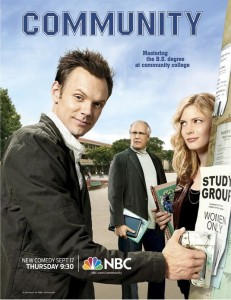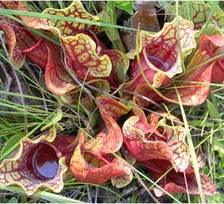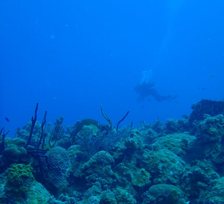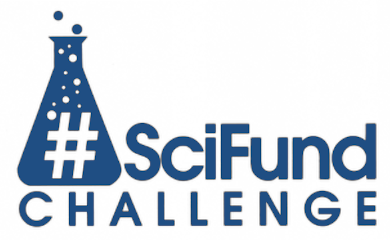
The second round of #SciFund Challenge ends on May 31 and I am just amazed at how well we are doing. 23 of 75 projects have hit their funding targets, with many remaining projects within striking distance of their goal. What gets me excited about #SciFund though isn’t the money. What gets me really pumped is that the #SciFund scientists have formed a real community focused on supporting each other and on connecting science to society. Most of the community stuff takes place behind the scenes, but I thought I would let everyone in on the secret!
A great example of the spirit of the #SciFund community occurred in response to a post I wrote two weeks ago about the hidden agenda of #SciFund. That post started the most amazing series of e-mail responses from the community and, with the permission of the #SciFund scientists, I am sharing those responses in order with you now.
In my original post, I wrote the following:
And that leads me to the hidden agenda of #SciFund, which is to change the world (shhh, don’t tell anyone). And all of you are part of it! I really think of #SciFund as a crash course in modern communication for scientists. Everything that you are doing as part of your #SciFund campaign (putting together your compelling science message, getting the word out about your campaign, etc.) is essential to effectively engaging broader audiences with your science, whether money is involved or not. In fact, crowdfunding for science is really just a special case of science outreach.
We live in a world where science is incredibly disconnected from society, with disastrous consequences for conservation, education, and for plenty of other policy issues. However, by taking part in SciFund – by actively trying to connect your science to broader audiences – you are part of the solution. Regardless of the amount you raise, you are having an incredible impact on our world just by reaching out to larger audiences with your science.
It is my fervent hope that you will continue your science outreach efforts even after this round of SciFund ends. It certainly would be in your interest – after all, the larger the fan base you can build around your science, the more that you will eventually be able to raise through crowd funding. But more importantly, by continuing to reach out with your science, you would be part of the growing movement to make the world a better place by connecting everyone directly to science and scientists.
 Kirk Hausman (STEMulate Learning with Personalized Robots!)
Kirk Hausman (STEMulate Learning with Personalized Robots!)
I would like to second your suggestion that #SciFunders may be changing the world by their actions – I discussed this on my blog, talking about scientists’ invitation to the public to become partners in discovery. Science has always been the purview of the few, with specialized knowledge, techniques and even equipment necessary to even understand many studies. This has led to the “Ivory Tower” perception that even now drags at centers of learning because the public, faced with difficult economic times, lacks an understanding of why their tax dollars go to support cloistered secretive scientific research in darkend labs out of the sight or even understanding of “common folk.” So, when polled by legislators, the lay public often does not understand what benefit comes from research and so cuts are deep for the very institutions that will provide future innovations, cures and other benefits that would be very desirable – if only the public knew of them.
It does not surprise me that many of the #SciFund projects are ecological in nature, because there are many areas that need care and stewardship to foster a promising future – and yet, without the scientists speaking clearly and in terms understandable to the public, solutions would not be forthcoming due to simple ignorace of the problem itself. The scientists taking part in this rather grand experiment are not following the traditional path of Academia, modelled after guild membership many centuries past, but instead are stepping out into the light of day to meet the public and talk with them plainly to share their enthusiasm in the process of discovery that underlies all research and exploration.
This cannot help but to change the world – at least for those touched by the messages, as they reveal in part the wonders and concerns in the world around us all. Once one’s eyes are opened to the new world, it is very difficult to close them once more and so #SciFunders are inspiring not only their own works but also the idea for others that average people can and will be part of future learning and research – they are not to be kept out of the so-called Ivory Towers, but instead invited along on a grand treck to see the tiniest of creatures or the rarest of locations together with a learned guide who can help them to see what is so magnificently special about what is before them.
It truly is a wonder to be a part of #SciFund, entirely apart from the sponsorship I have found for my own research, because to participate is to walk amongst visionaries, leaders and explorers reaching towards the future that lies ahead.
To my fellow #SciFunders – you are all simply marvelous, and I am honored to be counted in your number. To Jai and Jarrett – I can offer no more sincere thanks that you have opened this amazing opportunity to us all in your own search for discovery/
Bravo and brava, one and all!
 Kristina Summers (No Bogs, No Bugs, No Plants, No People)
Kristina Summers (No Bogs, No Bugs, No Plants, No People)
I agree 100 percent! Back (a lifetime ago it seems now) when I worked as a public affairs specialist for GA DNR, it was my job to accompany the wildlife biologists and document their work. Well actually that wasn’t my job but I decided it should be because how else was the public going to k now about all the cool wildlife conservation things they were doing? I took photos, made videos, created a youtube channel, all for the purpose that the public could gain a better understanding of what we were doing and why. (My section of the agency received no direct gov’t funding so we were dependent on donations, tag sales and grants) I told them, why would the public give us more money if they don’t know what we do, and find it interesting like I do. Well I got. A lot of push back, but now it is the norm for wildlife agencies all over the country, so this project seems like a similar line of thinking and I am just so glad to be a part of it!
 Brittney Honisch (Muddy waters: coral health after storm events)
Brittney Honisch (Muddy waters: coral health after storm events)
I cannot agree more with Jai’s sentiment… I personally did not see this as a hidden agenda, because for me this is about a lot more than being a poor graduate student and needing research money. Even though I’m stumbling along, not really sure how to go about this, I was excited to reach out to people. It reminds me of a summer spent in rural Maine working at the Bigelow Laboratory for Ocean Sciences as an REU student and meeting their fantastic director. He was so passionate about communicating science that we opened the entire lab to the public for several days and let them mosey around and poke and prod and ask questions. In addition to that, Bigelow maintained a summer tradition of the Cafe Scientifique – an informal, public environment where an expert could discuss recent research and answer questions with the backdrop of coffee or drinks. What amazed me, both for the open house and these cafe meetings, was the turnout. In this sleepy New England town, people showed up with voracious appetites for science, across all age groups. This reaffirms what I bet a lot of us know (or are discovering) – people want to know. They are interested. For every person out there who doesn’t care, there are just as many who do! Keeping our projects, our passions, our findings, trials, and tribulations tied up in an Ivory Tower doesn’t just do the public a disservice, but it hurts us as well. Sometimes when I get frustrated when Americans don’t have interest in pertinent issues such as conservation or climate change, I have to remember – how will these people know? I always hear my peers say that the media clouds these issues, or that people are ignorant. Of course they are! When journals aren’t open source, when we think what we have to say isn’t interesting, that is how it starts. But projects like these – that seek to break down that wall, that open lines of communication and innovation and interest – that is how we can truly change the status quo. One person, one project, on conversation at a time.
I feel fortunate to be a part of this challenge and journey with so many great people! May this be not an end-all be-all, but rather a starting point … I know for me it is!
 Simon Van Rysewyk (The face of pain)
Simon Van Rysewyk (The face of pain)
I found this (disturbing) sentence highly motivating:’ We live in a world where science is incredibly disconnected from society, with disastrous consequences for conservation, education, and for plenty of other policy issues.’
 Peter Hsieh (Renewable fatty acids from biodiesel)
Peter Hsieh (Renewable fatty acids from biodiesel)
Jai, thank you so much for the opportunity to be a part of this experiment. The present model of science funding is arguably a step up from the system it replaced (patronage or self-funding by the wealthy and powerful). However, as you and Kirk have noted, the majority of the research funding is allocated by a small group of decision-makers in government, academia, and industry. Many grant proposals are never funded, not because the science isn’t good, but because they’re not today’s hot topic. Ultimately, I think crowdfunding could lead to a wider diversity of research, which is a plus. To make that happen, we need to engage our colleagues, many of whom are skeptical about the merit of crowdfunding. I think one way to do that is to acknowledge SciFund as a funding source and let the publication record speak for itself.
On a slightly different note, the exercise of writing a research proposal for the public (and not a funding agency) has changed my perspective on the role of science in a societal context. Before, the scientific novelty and potential impact on other researchers came first, because it has to pass muster with the funding agency and its reviewers. Framing the research in a context that would make sense to the public is typically not a priority for grant proposals. The SciFund Challenge inverts the priority, and asks participants to make their case directly to the public. It forces us as scientists to stop thinking about our work in terms of writing grants and publishing papers, and instead think about what our work means to society at large and why society should support our work.


